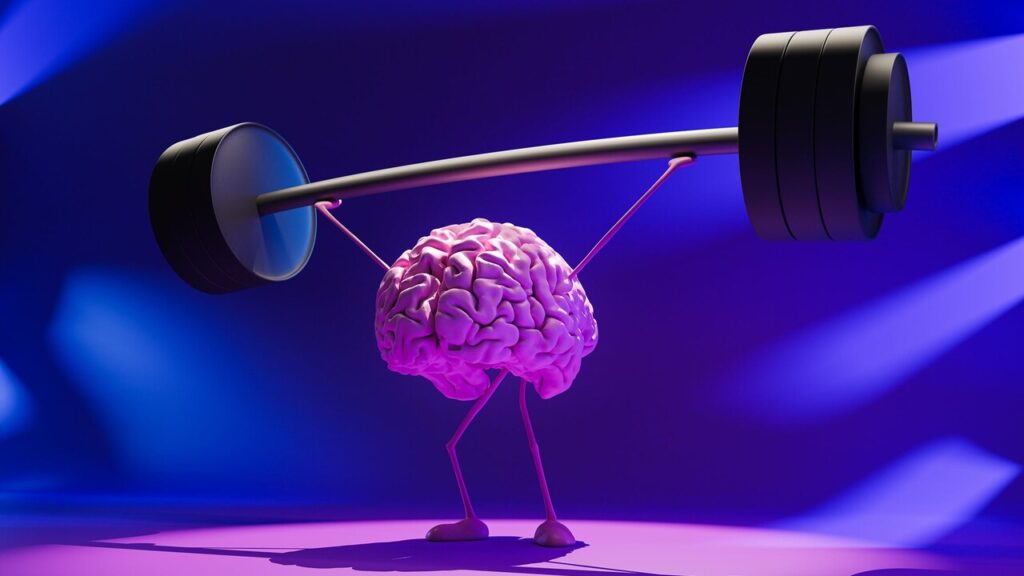
Menopause And Weight Gain: Real Solutions From A Functional Medicine Perspective | Heal n Cure Medical Wellness Center
Many of us have felt the challenge of maintaining our weight as we age. It’s a shared observation that menopause-related weight gain begins even before our periods stop. Research has confirmed what many of us have hypothesized: hormones are significant participants here, manipulating our hunger levels and our bodies’ chosen fat storage areas.
Low libido during menopause is often intertwined with weight gain, creating a challenging cycle for many women. As estrogen levels decline, not only does sexual desire diminish, but the body also undergoes metabolic changes that can lead to increased fat storage, particularly around the abdomen. This hormonal shift can decrease muscle mass and slow metabolism, making it easier to gain weight.
Our article presents practical solutions, founded on functional medicine, to confront this challenge with certainty. Join us for some considerate insights and tips focused on managing these changes more effectively.
Key Takeaways
- Hormone changes and slower metabolism during menopause can make you gain weight.
- Personalized health plans in functional medicine focus on diet, exercise, and lifestyle to help manage menopause weight.
- Eating whole foods and anti-inflammatory foods helps control weight gain.
- Mixing different types of exercises, like strength training and yoga, is good for health during menopause.
- Drinking enough water and getting plenty of sleep are important too.
Understanding Menopause-Related Weight Gain
Menopause brings changes, like hormone shifts that can make you gain weight. Your body’s metabolism also slows down, making it harder to keep those extra pounds off.
Hormonal changes and their impact on weigh
During perimenopause and after menopause, our bodies go through big changes because of hormones. Testosterone & estrogen levels usually drop along with many other metabolic changes. This makes us more likely to gain weight around our belly.
Lower hormone levels make our metabolism slower. When this happens, our bodies don’t burn calories as quickly as before. Plus, we might feel hungrier and not want to move as much
BHRT has been a help for some of us by lowering the fat in the middle part of our bodies and making insulin work better.
It’s clear that these hormonal shifts push up both total body and belly fat in women during menopause. Keeping active and eating right are key ways we’ve found to fight this weight gain from hormone changes.
The role of metabolism slowdown
As we age, our muscle mass drops. This change makes our metabolism slow down. A slower metabolism means the body uses fewer calories. Because of this, gaining weight becomes easier for us.
Around 60% of adults don’t move enough, making things worse as we get older. We need to adjust how long and how hard we exercise to lose weight because we burn less energy during physical activity now.
Next, let’s look into how a functional medicine approach can tackle menopause-related weight gain by focusing on personalized health assessments and blending diet, exercise, and lifestyle changes for better health outcomes.
Functional Medicine Approach to Menopause Weight Gain
In functional medicine, we dig deep to find the root cause of menopause weight gain. We look at your whole health picture, like gut health in addition to eating habits and daily routine, to create a plan just for you
Importance of personalized health assessments
We know every woman experiences menopause differently. That’s why personalized health assessments are key. At the start, we set clear health goals and dig into medical histories. Next, we run lab and other diagnostic tests to understand each body’s unique chemistry.
This approach lets us target menopause symptoms like weight gain, hot flashes, and low libido right at their roots.
Most of the time after gut health is restored the focus goes on diet and exercise. With insights from personal assessments, we tailor recommendations that actually work for you.
Integrating diet, exercise, and lifestyle modifications
Personalized health assessments tell us where to start. Now, we bring diet, exercise, and lifestyle changes together for menopause weight gain.
- Aim for a 5-10% reduction in total body weight. This brings big health benefits.
- Focus on whole foods and balanced nutrients. Eat more fruits, vegetables, whole grains, and lean proteins.
- Cut out sugar-sweetened beverages and high-calorie snacks. These add weight without nutrition.
- Add anti-inflammatory foods like fish, nuts, and green leafy vegetables to your meals. They fight heart disease and diabetes.
- Pick exercise routines that mix strength training with aerobic exercises. Think cycling, jogging, or swimming.
- Make exercise a regular part of your week—aim for at least 150 minutes of moderate activity.
- Adapt workouts to fit your life so you stick with them longer. Maybe it’s pilates at home or walking in the park.
- Manage stress through yoga or meditation since stress leads to weight gain.
- Sleep at least 7-8 hours a night; poor sleep can make you hungry and slow down weight loss.
- Drink plenty of water every day—it helps control hunger and keeps your metabolism going.
By doing these things, we tackle menopause-related weight gain from all sides—diet, fitness, and lifestyle—for real change that lasts.
Effective Dietary Strategies
To tackle weight gain during menopause, focus on whole foods and balance what you eat. Add anti-inflammatory items to your meals—they help a lot.
Emphasizing whole foods and balanced nutrients
We focus on whole foods packed with nutrients for a healthier diet. Eating more fruits, vegetables, and grains gives your body the fiber it needs. This way of eating helps avoid processed items that are not good for you.
A plant-based diet is better for keeping weight in check during menopause. Adding protein keeps muscles strong and helps overall health.
Next, we discuss how anti-inflammatory foods play a role in this healthy eating plan.
Role of anti-inflammatory foods
Eating anti-inflammatory foods changes things for us during menopause. Foods like those in the Mediterranean diet really help. This diet includes fruits, vegetables, nuts, and whole grains.
It cuts down on meats and dairy that can cause inflammation. Omega-3 fatty acids and polyphenols are key here. They fight inflammation in our bodies. Thanks to them, we see less swelling and pain.
We also notice how our body feels better overall. Our gut health improves with these kinds of foods too. Why? Because they’re good for the helpful bacteria in our stomachs
So choosing what we eat carefully makes a big difference in handling menopause symptoms better.
Exercise Recommendations
e say, mix up your workouts. Try strength training, yoga, and walking… Keep it regular but switch things around to stay interested and fit.
Types of exercises beneficial during menopause
Exercising during menopause aids in weight management, mood improvement, and lowering health risks. The focus is on activities that enhance muscle mass, bone density, and metabolism.
- The agenda includes weight lifting twice a week for muscle development. Strength training accelerates our metabolism and aids in preventing bone loss.
- High-impact routines such as running or HIIT augment our bone density. The approach is to initiate slowly to circumvent injuries.
- Aspiring for 150 minutes of moderate aerobic activities weekly, routines like walking, swimming, or cycling are pursued for at least 30 minutes a day.
- Pelvic floor exercises, like Kegels, fortify our bladder and sexual functionality.
- Yoga sessions provide a relief strategy for hot flushes, sweats, and stress. They also serve as a mechanism to improve flexibility and balance.
- Steady stretching routines ensure our joints remain flexible and free from pain.
Next, exploring effective dietary strategies to accompany these exercises is our focus.
Consistency and adaptation to exercise routines
We know sticking to an exercise schedule can be tough. It takes about 20 days to make it a habit. So, we put it on our calendars just like any other important appointment. We start with a warm-up for at least 10 minutes, stretching our major muscles before we get into heavier activities like weightlifting or cardio exercises.
This way, we avoid injuries and prepare our bodies for what’s coming next.
We mix up our routines to keep things interesting—strength training one day, maybe yoga or walking the next. Consistent strength exercises are key during menopause; they help us manage hormonal changes and combat fatigue.
Starting simple boosts our energy levels more than we expect—walking is often all it takes to feel better mentally and physically. With consistent effort, those of us dealing with menopausal symptoms find real relief and improved fitness over time.
Menopause brings weight gain for many of us, but real solutions exist. A functional medicine approach shows promise. It adds personalized health assessments and combines diet with exercise and lifestyle changes.
Foods rich in nutrients and anti-inflammatory properties along with a mix of exercises can make a big difference. Together, we can tackle menopausal weight gain effectively—step by step, choice by choice.
Menopause can significantly impact urinary health, often leading to urinary incontinence. As estrogen levels decline, the tissues in the urinary tract and pelvic floor weaken. Estrogen is essential for maintaining the elasticity and strength of these tissues, so its reduction during menopause can result in a decrease in the support provided to the bladder and urethra.
Frequently Asked Questions (FAQ)
What’s the connection between menopause and weight gain?
Menopause can lead to weight gain due to hormone imbalance, particularly in postmenopausal women. Hormone changes affect fat distribution, causing an increase in visceral fat
How does a healthy diet help manage weight during menopause?
A healthy diet is crucial for managing weight during menopause. Low-calorie, low-carb diets filled with fiber can control blood sugar levels and prevent metabolic syndrome – reducing risks of stroke and cardiovascular disease.
Can physical activity help with weight control during menopause?
Yes! Regular exercise like lifting weights helps maintain your resting metabolic rate, aiding in losing weight while also preventing osteoporosis.
Are there medical solutions for managing menopausal weight gain?
Indeed! Menopausal hormone therapy or hormone replacement therapy are options some consider under guidance from Heal n Cure Medical Wellness Center.
Does menopausal weight gain increase risk of chronic diseases?
Absolutely – overweight or obese postmenopausal women face higher risk of high blood pressure, high cholesterol levels and other chronic diseases affecting their physical health.
What should be avoided when trying to lose weight during menopause?
Crash diets or fad diets should be avoided as they might cause more harm than good… Also avoid sugary drinks and opt for sugar substitutes instead.


